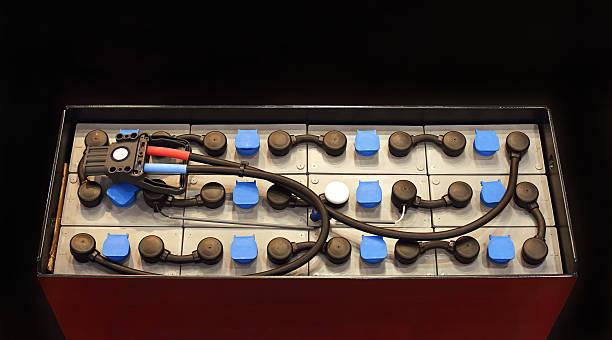Deep-cycle batteries, a crucial electronic component for power systems, are meant to be frequently drained and recharged. Solar power systems, golf carts, and RVs utilize them, making them searchable through an electronic component search engine for easy sourcing. Deep-cycle batteries need regular maintenance to last. After charging, check the battery’s fluid level and voltage. Hydrometers and DC voltage meters may be used for these examinations.
Table of Contents
What Is a Deep-Cycle Battery?
Strangers may mistake deep-cycle batteries for automobile batteries, but they’re different. Deep cycle batteries are lead batteries that give continuous power until they are 80% drained or more and must be recharged, a feature detailed when you visit here for more information. To prolong battery life, most manufacturers advocate avoiding draining below 45%. Deep cycle batteries may be removed up to 80%.
Unlike other batteries that produce brief energy bursts before recharging, the discharge level is a “deep cycle”. Every time a starting battery is used, it drains 2–5%.
Types Of Deep-Cycle Batteries
The following are the deep-cycle battery types:
- Flooded Deep-Cycle Batteries: These are the most prevalent. They’re cheap and accessible, and you canbuy electronic components online to find the best deals. They need frequent electrolyte maintenance, like adding distilled water.
- Sealed Deep-Cycle Batteries: Also called maintenance-free batteries. They don’t need distilled water, making maintenance simpler, a benefit highlighted when you click herefor maintenance tips. These batteries cost more than flooded deep-cycle batteries.
- Absorbed Glass Mat (AGM) Batteries: The glass mat in AGM batteries absorbs electrolytes. This distributes electrolytes evenly throughout the battery, improving performance and longevity, as explored on Partstack, the leading electronic component search platform.
- Gel Batteries: Gel batteries add gelling chemicals to electrolytes. The electrolyte thickens and becomes more viscous, preventing battery leakage.
- Li-Ion Batteries: Recently developed lithium-ion deep-cycle batteries have significant benefits over lead-acid batteries. They’re lighter, last longer, and maybe fired deeper without harm. However, they cost more than lead-acid batteries, a comparison easily made usingan electronic component search tool.
Advantages of Deep Cycle Batteries
Deep-cycle batteries have several benefits than cart batteries. Here are some:
- Longer Life: Regular batteries last less than deep-cycle batteries. They may offer energy for long durations without replacement despite frequent charging and discharging cycles.
- Higher Discharge Rates: Deep-cycle batteries may remain powerful for years. This makes them ideal for constant-power applications.
- Versatility: Deep-cycle batteries are utilized in solar power and recreational vehicles.
- Eco-Friendliness: Deep-cycle batteries are greener. They recycle better and contain less toxic chemicals.
- Cost-Effectiveness: Deep-cycle batteries cost more upfront but save money over time. They last longer, need less maintenance, and provide more electricity.
Discharge Capability of Deep Cycle Batteries
As indicated, deep draining a starting battery hurts performance. Deep cycle batteries can discharge more energy and provide power for a longer time. The safe discharge level varies per battery. Some batteries can safely remove 100%, while others may only drain 45%. Check your battery’s manufacturer’s advice.
Applications of Deep Cycle Batteries
Recreational vehicles and backup power systems employ deep-cycle batteries. Some popular uses:
- Recreational Vehicles: RVs like boats, motorhomes, and campervans require deep-cycle batteries; their power powers lights, freezers, and other appliances.
- Solar Power: Solar power systems require deep-cycle batteries. They store solar energy throughout the day to power at night. Many boats and yachts utilize deep-cycle batteries because they may be reused. They power navigation, illumination, and other devices.
- Electric Vehicles: Electric golf carts and forklifts utilize deep-cycle batteries. They power the car’s electric motor.
- Power Backups: Home and commercial deep-cycle batteries are employed in backup power systems. They provide emergency electricity.
Conclusion
Many applications need dependable, long-lasting, deep-cycle batteries. Deep cycle batteries must be understood for best performance and lifespan, including their benefits, uses, selection considerations, and maintenance advice. Deep-cycle batteries may last for years if properly maintained.
